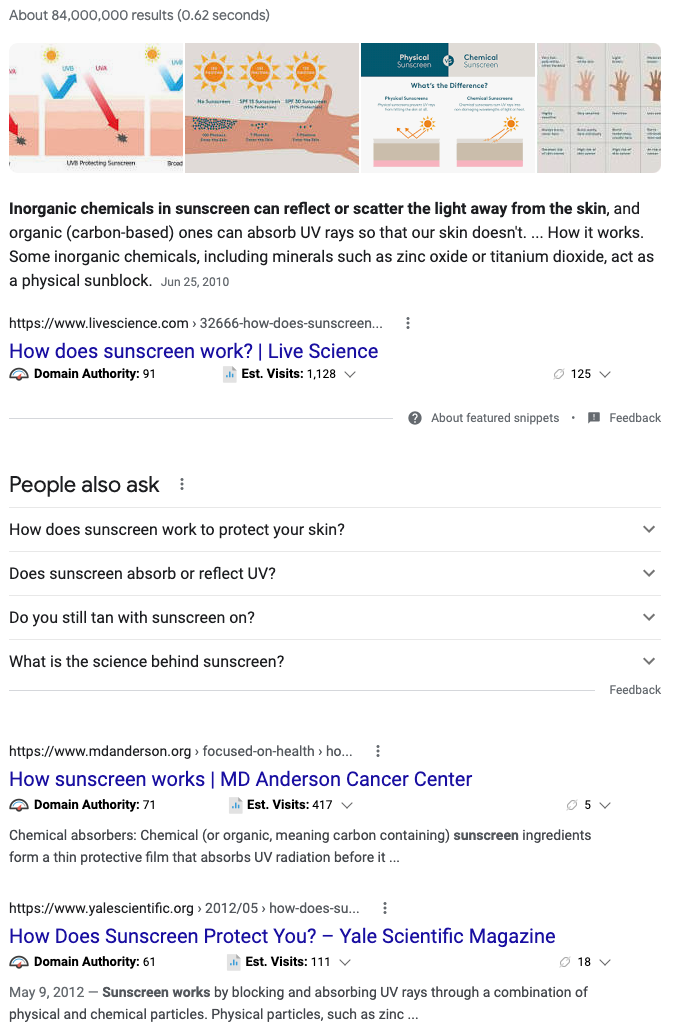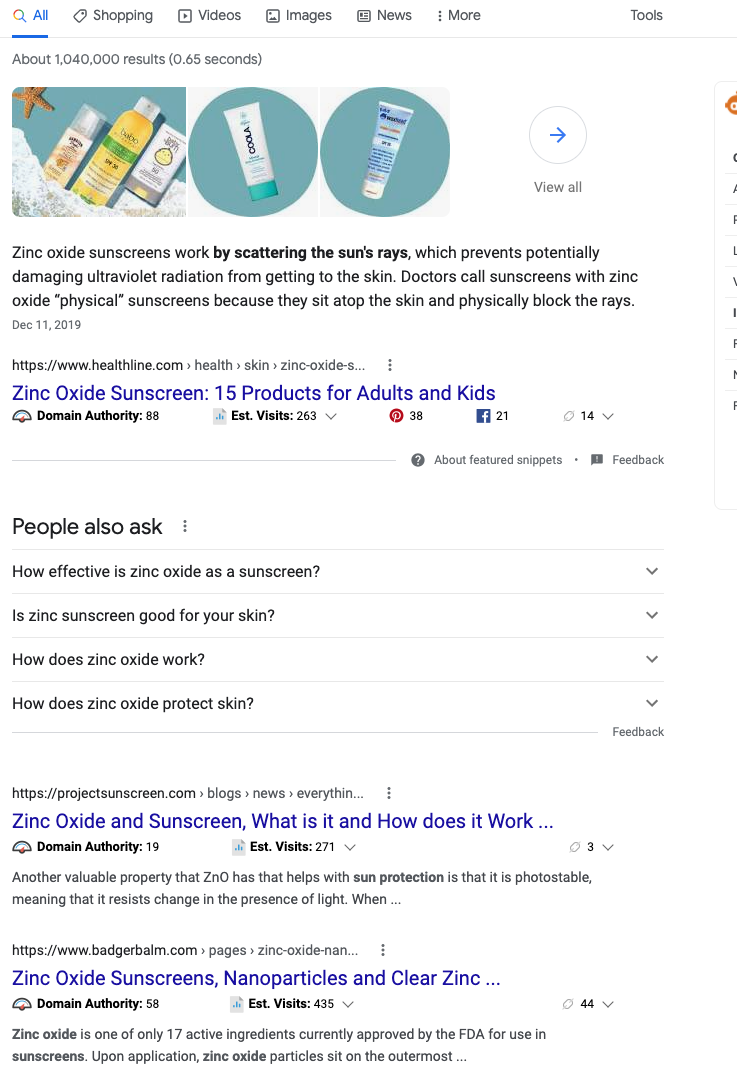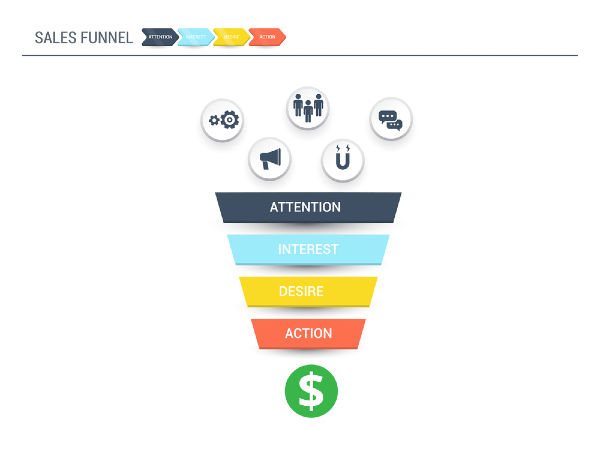5 Challenges of Content Marketing
The goal of your website is to generate leads and sell your products and services. But have you considered your content marketing strategy?
We’re sure you’ve heard about the struggles businesses face when it comes to content marketing, but it’s still highly recommended to focus on this area of marketing for your business.
We’ll discuss what content marketing is, give some tips for facing content marketing challenges, and why it’s an important digital marketing strategy for your business.

What is Content Marketing?
Simply put, content marketing is the creation and distribution of content and information to current and potential customers.
Some examples of content marketing include:
- Blog Posts
- Email Newsletters
- Social Media Posts
- Videos
- Podcasts
Done correctly, your content conveys expertise and makes it clear that your company values the people it sells to.
The consistent use of content marketing builds and maintains relationships with your existing and potential customers. If your audience sees your business as a partner who cares about them and is a valuable source of advice and guidance, they are more likely to choose you when it’s time to make their purchase.
An established business should spend between 5 and 10% of their sales revenue on marketing and promotion, but that figure could rise to 20% or more for companies that are just starting out.
Where digital marketing budgets are spent is just as important as the amount of money allocated for these efforts. Many companies have moved away from search engine optimization in favor of social media in recent years, but the figures suggest that this could be a major mistake. Almost one in three Americans search for small businesses on Google every day, and organic search accounts for 53% of all website traffic. That is more than 10 times the amount of traffic social media produces.
What are the Key Challenges Facing Content Marketers?
Although content marketing is an important part of building your online presence and reputation, it isn’t going to be easy. These are a few of the main challenges in content marketing today:
Producing quality content
Content is one of the most effective ways to promote a brand or company, but it needs to be of the quality that your audience expects and offers real value. When researching your top competitors’ content to see how it fares in search results, you will get a good indication of how to meet or exceed the content standards of your industry.
Google uses a number of metrics to measure engagement with content hosted on these pages, such as the bounce rate, time spent on the page, and scroll depth. It is not enough to focus on maximizing these metrics. Your content should be bold and original because, without a strong opinion or difference, it is unlikely to interest your target audience. It is not enough to create generic “one-size-fits-all” content.
To make sure you’re developing powerful content for your audience, find a unique point of view and then develop, deepen, and broaden topics that answer your audience’s questions.
Consistency
Although it is highly recommended to have a sound, data-driven strategy for your content, consistency is just as important.
Forbes suggests that “[w]hen your content quality, quantity or schedule isn’t consistent, it can confuse your customers. Keeping with a regular strategy not only helps create a better customer experience but it also helps build credibility, reputation and brand trust.”
Blog posts once a month or social media posts once or twice a week are sufficient as a start to delivering consistent content and keeping your brand at the top of your followers’ minds.
Besides maintaining a consistent (and workable) posting schedule, brands should aim to maintain consistent language and online response rates (whether responding to complaints or general comments).
Insufficient Resources
Producing content is easy.
Producing good content is much more difficult.
It takes time and skill to consistently produce high-quality content. Many small businesses start their own content marketing efforts, and for good reason. After all, nobody knows your business better than you, so you are the perfect person to blog about everything you do.
Unfortunately, creating great content all the time can get in the way of other things, such as running your company which is one of the biggest content marketing hurdles that many companies face. The other is the lack of an adequate digital marketing budget. After all, if you don’t have the time to produce your own content, it makes sense to pay someone else to do it. The problem with this approach is that many potential content producers face what is known as the project management triangle (“Good, fast, cheap. Choose two.”). Either you accept the time it takes to produce consistently high-quality content, or you have to pay to have it done for you.
Choosing to produce your own content can save you a lot of money, but unless you can somehow balance running a business and running a blog, you will increase your working hours to accomplish it all.
It’s tempting to think of content as a “free” marketing strategy, but it isn’t. Be ready to grapple with the tangible cost of content marketing long before you sit down to write your first post, or ask someone else to do it for you.
Increased Competition
Whether you’re blogging about your local photography business or Enterprise-Class IT hardware, someone has already written about it, and probably for quite a while. Unfortunately, this challenge makes the previously mentioned one worse.
What can you do when competition for an audience increases? Create better content that takes more time, money or both. Additionally, as the competition for audience attention increases, so do your readers’ expectations, which puts even more pressure on you to do more than deliver great content, rather deliver truly exceptional content.
In content marketing, there are no guarantees, but one thing is certain: if your content stinks, it will do nothing for you!
Every post you put out in the world should be as good as possible and continue to do so long-term in hopes of building and maintaining your audiences.
It is virtually impossible to hit the bull’s eye every time. Even the best blogs occasionally publish mediocre content, but you need to strive for excellence. You also need to actively promote your content and give it multiple chances of success (such as republishing content on Medium and other sites where it can reach new audiences).
Finding Relevant Keywords You Can Rank For
With the increase in competition comes the difficult task of finding keywords you can rank for.
Although you can write about all sorts of relevant topics, a haphazard approach to content marketing will most likely yield less than desirable results.
This is why we talk about content marketing and strategy.
A sound strategy includes the following:
- Keyword research – This is where you pull the data from SEO tools to find out what search terms people have used that you show in the search engine results page for. It’s helpful to know how many impressions or clicks your results are receiving as well as what keywords you are ranking for. To gather this information, you’ll need these SEO tools for small businesses.
- Keyword research of the competition – Using good SEO tools, you’ll be able to see the keywords your competitors rank for which can help to give ideas about keywords you may not have thought about for the existing pages on your website.
- Determining what you can rank for – Once you have a list of keywords that fit the various pages of your website, you can then narrow down the terms for the most targeted and decide on ones with the best likelihood to rank (based on your current rankings).
- Keyword gap analysis – A look into several of your competitors’ keywords compared to yours will give you an idea about the relevant pages or topics that can be covered on your site.
- Backlinking – Gaining organic backlinks from higher authority and industry/niche relevant websites is another favorable activity that will contribute to improvements in your rankings and Domain Authority (a score that measures the probability of ranking for your site).
Of course, not every keyword you come across is going to work. It’s important to determine the best keyword with the highest likelihood of ranking to target for each page.
As an example, let’s say you’re a sunscreen retailer and you want to write content about how sunscreen works.
When you do a Google search on the term “how does sunscreen work” you’re given the following search results:

You’ll see there are about 84 billion results to compete with. Even more importantly, our tools indicate that the 3 top results are from well-established websites with high Domain Authority. If you’re a small business with a new or low authority website, your chances for ranking for this term is pretty unlikely.
Now, let’s try to narrow the search to something a bit more specific. If your store also sells zinc oxide sunscreen, this is much more targeted. So, we’ll try searching “how does zinc oxide sunscreen work.”

The search results are looking much more favorable at this point. You’ll see there are just over 1 billion results and while the 1st result is going to be hard to beat, the second is a bit more attainable, depending on the authority of your own site.
Now, let’s try to narrow the search to something a bit more specific. If your store also sells zinc oxide sunscreen, this is much more targeted. So, we’ll try searching “how does zinc oxide sunscreen work.”
Making it About the Customer
One of the biggest challenges of content marketing is convincing yourself, as the expert, that you’re not writing for yourself and that content isn’t a sales pitch.
Sure, you want to see an ROI on your content, but your audience doesn’t visit social media or blog posts to be sold to. They go to be social or to gain information, insights, or to be entertained. If you’re writing with a focus on self-promotion and sales, your potential customer may be turned off, never to return.
Entrepreneur.com reminds us that “… people connect with people, not businesses.” So, write articles with your customer in mind, get a little personal or tell a funny story and tone down the sales pitches, instead, providing simple calls to action after you’ve provided your readers with relevant information.
Now, let’s try to narrow the search to something a bit more specific. If your store also sells zinc oxide sunscreen, this is much more targeted. So, we’ll try searching “how does zinc oxide sunscreen work.”
What are the Benefits of Content Marketing?
Now that we’ve discussed 5 key challenges of content marketing, let’s look at why it’s still a must-have strategy for your business.
These are the benefits of content marketing:
Helps with SEO and Traffic
Your website is technically “complete” with your home page and service or product pages. But, you’re competing with billions of other websites in your niche. Unless you’re a big name that everyone recognizes (Coca-Cola, Samsung, Apple, etc), you still may find it difficult to rank your website for competitive keywords for what you’re selling.
Content marketing can help by increasing your keyword universe by answering searchers’ questions.
When done right, a useful, well-researched and informative (or entertaining) post can garner (organic) backlinks to your content and boost Google’s trust in your page.
Establish Authority
Consistently writing great content can help you to establish authority in your industry.
Not only can you write informative content, but you can write content to solve your target audience’s pain points and build customer relationships.Becoming a trusted source of information enhances your credibility, authority and improves SEO for your website.
Brand Awareness
When you’re a new brand, reaching a larger audience can be difficult.
Creating valuable, relatable and relevant content that people want to share can help you reach new audiences.
Marketing doesn’t have to be about always getting the sale. Content should serve as a way to get people to connect with your brand and remember it.
This is a long-term strategy toward sales when done right.
Let Your Personality Shine
Landing pages on websites are designed for a couple of main purposes: sales or lead generation!.
Content marketing allows your business to create articles and social media posts that allow you to share your brand personality and values. Your voice will connect you to the audience who most identifies with your brand in this way and can lead to creating strong relationships.
Multiple Formats Available
Content marketing isn’t solely blog posts and your audience can be found all over the web! Fortunately, there are many outlets to consider for content creation. Additional content strategies include:
- White papers
- Webinars
- Videos
- Lookbooks
- Live Q&As
Determine a few of the key places your target audience seeks the information you have available and work on a strategy designed for them.
Increase Social Media Engagement
Believe it or not, social media isn’t as random as it may seem.
Your PR strategy can work well with your content strategy to deliver the right message at the right time to the right audience.
Maximizing the Conversion Funnel
Today’s conversion funnel looks like this:

A sound content marketing strategy will keep this conversion funnel in mind and help you to produce content for each stage of the buyer’s journey.
How GYBO Can Help You Overcome the Challenges of Content Marketing
Most likely, you just want to get the word out that your small business exists and you don’t have the time to learn every aspect of marketing in today’s competitive and complicated digital marketing environment. The idea that learning keyword research, performing keyword gap analysis and trying to understand domain authority and ranking potential can make your head spin.
That’s where we come in!
We act as your partner, taking into account your business goals to help create a sound digital marketing strategy. Our content marketing strategies are tailored to your brand, voice and goals to help improve ranking, attract the right people to your website and drive more qualified leads into your sales funnel.
Interested in learning more? Contact us today!
